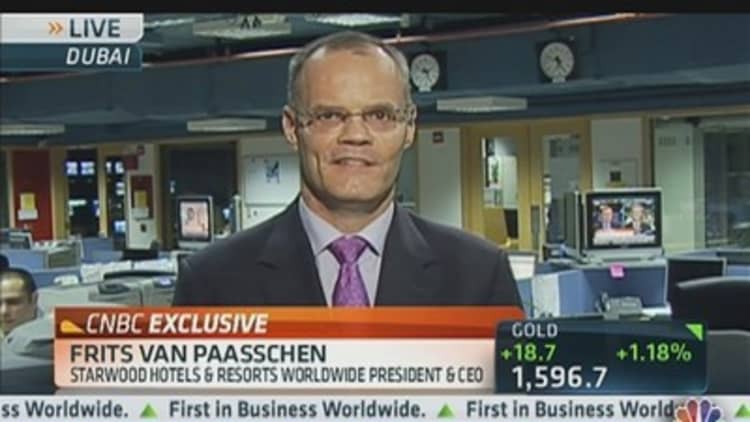In the midst of an $8 billion growth spurt, Sheraton will open 38 newly constructed hotels in the next 12 months, mainly focused in such emerging markets as China, Iraq, Russia, Tajikistan and Kazakhstan.
The robust schedule of openings indicates the hotel chain is "cautiously optimistic" about growth in the global economy, said Hoyt Harper, senior vice president and global brand leader at Starwood's Sheraton properties.
The June opening in Dohuk will mark Sheraton's first hotel in Iraq since it left in 1990, according a spokesman for Sheraton.
The opening of the 202-room Sheraton Dohuk Hotel will make it one of the first international hotel brands to return to the country. Located in the Kurdistan region near the border with Turkey, the hotel will feature meeting and event space, three ballrooms and a spa.
Last year, Wyndham opened the Ramada Sulaymaniyah Salim Street hotel in Kurdistan and Abu Dhabi-based Cristal Hotels & Resorts opened its Cristal Grand Ishtar Hotel in Baghdad.
Other chains have plans, including Hyatt'sHyatt Regency Sulaymaniyah and Hilton's DoubleTree planned for Erbil, both cities in Kurdistan. Best Western Premier plans to open its Erbil Airport Hotel, making it the "first airport hotel in Iraq history," according to the property's Facebook page. Starwood's Aloft brand has also announced plans for Erbil. And Sheraton has plans for three more Iraq hotels, Harper said.
(Read more: Hotel construction in post-recession boom phase)
"We see opportunity on both sides of the Turkish border," Harper told CNBC. "There has been considerable commercial growth as things normalize, if you will. ... We have unique business opportunity in the market. It's primarily to support the commerce that's going on, to support the business traveler."

The return of business-class hotels means that tourists could follow in a few years, said Jason Cochran, editor-in-chief of Frommers.com. The big hotels "tend to do things for the business market first and then the tourists follow later," he said.
There is no guideline about the length of time business and leisure travelers return to a region after a calamity, he said. "It depends on the political structure and the infrastructure of a country," he said. After the war in Yugoslavia for example, Croatia was able to revive its travel sector long before Sarajevo.
The Iraq additions are only a piece of Sheraton's $8 billion growth spurt, that will cover 75 new properties by 2016. The new construction will be managed by Sheraton but owned by others, in accordance Sheraton's existing operations.
(Read more: More foreign travelers making trips to the US)
This year's expansion will outpace Sheraton's prior record of when it opened 28 hotels in 2007, according to a company spokesman. Overall, Sheraton has 114 hotels in its queue overall, Harper said.
Of the next 38 Sheratons planned to open, 18 are in China.
The outlook for the global hotels remains varied by location, according to a report by the Hogg Robinson Group travel, expense and data management company. Asia remains a fast-growing economic region but "we expect to see some stopping and starting in forthcoming years as they reach maturity—currently, the stop-start nature of supply and demand, with one catching up with the other, means it will take a little time for these destinations to even out," Margaret Bowler, director of global hotel relations, wrote in the HRG View.
(Read more: Tour pros hopeful U.S. may ease Cuba travel rules)
—By CNBC's Amy Langfield. Follow her on Twitter at @AmyLangfield.
Follow Road Warrior on Twitter at @CNBCtravel.


